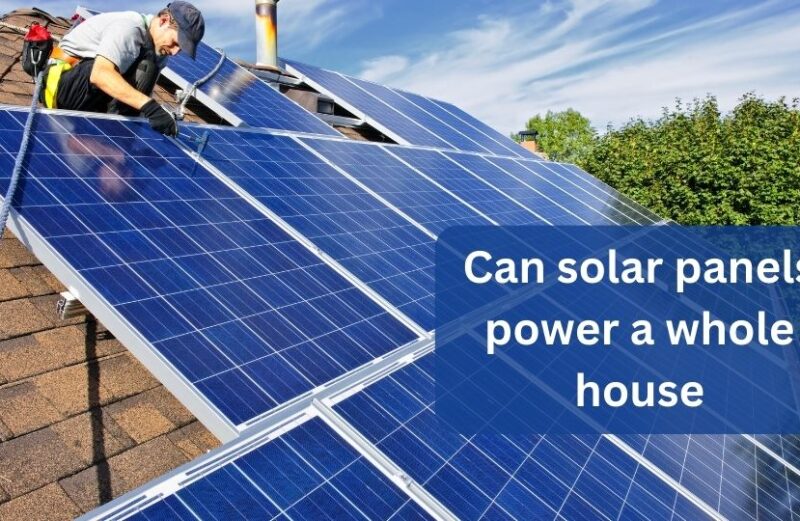Whether solar panels can power an entire house depends on several factors including the size of the solar panel system, the energy consumption of the house, local climate conditions, and energy storage capabilities. In many cases, it is possible for solar panels to provide enough electricity to power an entire house, but it requires careful planning and consideration of various factors:
- Size of the Solar Panel System: The size of the solar panel system, measured in kilowatts (kW) or megawatts (MW), determines how much electricity it can generate. A larger system can produce more electricity, increasing the likelihood of powering an entire house.
- Energy Consumption of the House: Understanding the energy consumption patterns of the house is crucial in determining whether solar panels can meet its electricity needs. Factors such as the number of occupants, types of appliances, heating and cooling systems, and overall energy efficiency play a significant role.
- Local Climate Conditions: Solar panel performance is affected by local climate conditions such as sunlight intensity, duration of daylight hours, and weather patterns. Areas with abundant sunlight are more conducive to generating solar energy efficiently.
- Orientation and Tilt of Solar Panels: Proper orientation and tilt of solar panels can maximize sunlight exposure and optimize energy production. Panels should ideally face south in the northern hemisphere (north in the southern hemisphere) and be tilted at an angle corresponding to the latitude of the location.
- Energy Storage: Solar panels generate electricity when the sun is shining, but energy storage solutions such as batteries are necessary to store excess energy for use during periods of low sunlight or at night. Battery storage systems allow for greater energy independence and the ability to power the house even when solar generation is insufficient.
- Grid Connection and Net Metering: Houses connected to the electrical grid can use net metering programs to sell excess solar energy back to the grid and receive credits, offsetting electricity consumption during times of low solar generation. This arrangement can help supplement solar power and ensure continuous electricity supply.
- Energy Efficiency Measures: Implementing energy efficiency measures such as using energy-efficient appliances, improving insulation, and reducing energy waste can lower overall energy consumption, making it easier for solar panels to meet the house’s electricity needs.
Overall, while it is possible for solar panels to power an entire house, careful consideration of factors such as system size, energy consumption, climate conditions, and energy storage is necessary to design a solar energy system that meets the specific requirements of the household. Consulting with a reputable solar energy provider or installer can help assess the feasibility and design an effective solar panel system.

